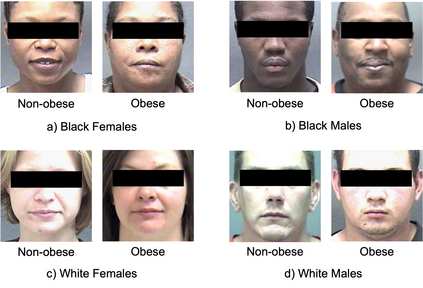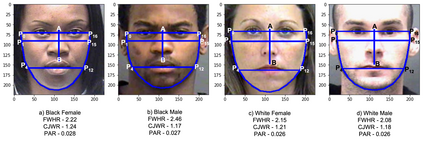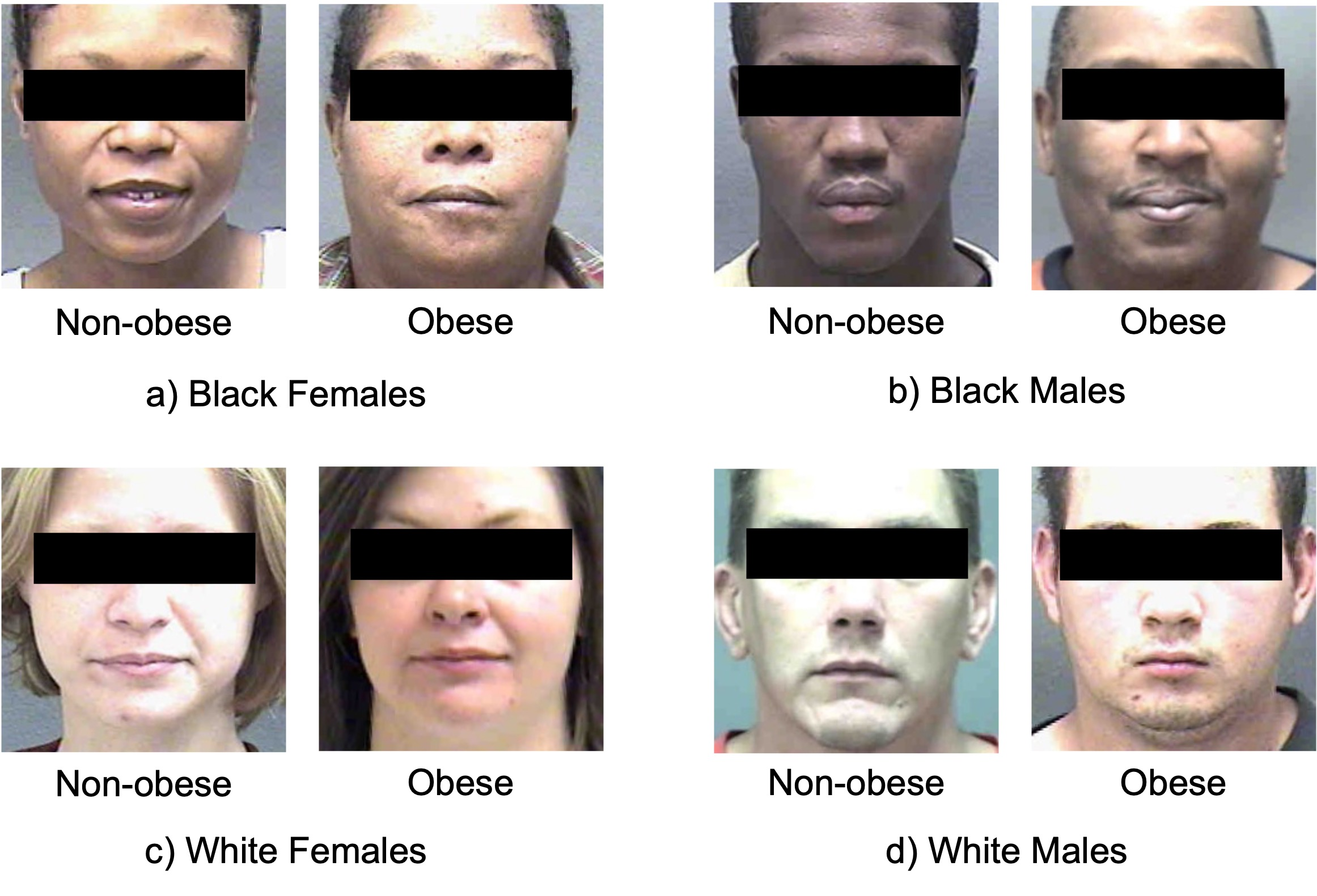Obesity is one of the most important public health problems that the world is facing today. A recent trend is in the development of intervention tools that predict BMI using facial images for weight monitoring and management to combat obesity. Most of these studies used BMI annotated facial image datasets that mainly consisted of Caucasian subjects. Research on bias evaluation of face-based gender-, age-classification, and face recognition systems suggest that these technologies perform poorly for women, dark-skinned people, and older adults. The bias of facial analysis-based BMI prediction tools has not been studied until now. This paper evaluates the bias of facial-analysis-based BMI prediction models across Caucasian and African-American Males and Females. Experimental investigations on the gender, race, and BMI balanced version of the modified MORPH-II dataset suggested that the error rate in BMI prediction was least for Black Males and highest for White Females. Further, the psychology-related facial features correlated with weight suggested that as the BMI increases, the changes in the facial region are more prominent for Black Males and the least for White Females. This is the reason for the least error rate of the facial analysis-based BMI prediction tool for Black Males and highest for White Females.
翻译:肥胖是当今世界面临的最重要的公共卫生问题之一。最近的一个趋势是开发干预工具,用面部图像预测BMI,用面部图像预测BMI,用于体重监测和管理,以防治肥胖症。这些研究大多使用BMI附加说明的面部图像数据集,主要由高加索人组成。对脸部性别、年龄分类和面部识别系统的偏差评价研究表明,这些技术对妇女、深肤色人和老年人的不良表现。面部分析的BMI预测工具的偏向性至今尚未研究。本文评估了高加索人和非裔美国人男女的面部分析BMI预测模型的偏向性。对经修改的MORPH-II数据集的性别、种族和BMI平衡版本的实验性调查表明,BMI预测的误差率最小针对黑人男性,白人女性最高。此外,与心理相关的面部面部特征表明,随着BMI的增加,脸部区域的变化对黑人和非裔美国人的影响更大,而白女性的BMI的偏差率最低。这是对B类女性的白色分析的最低。








